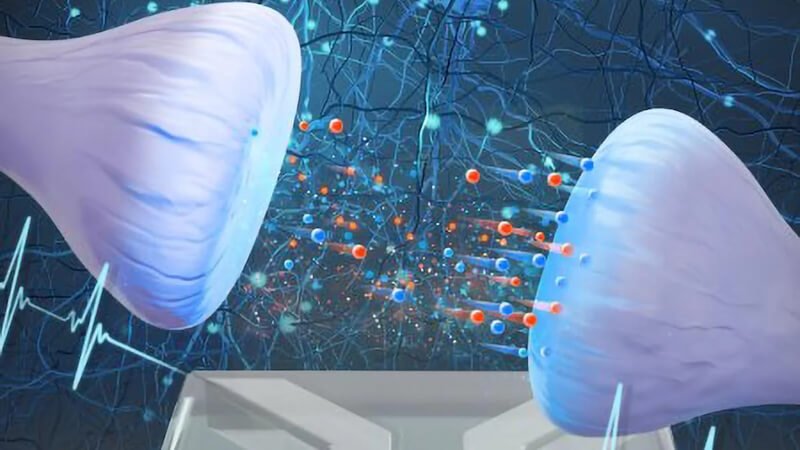
Researchers have developed a new type of computer in the form of an artificial synapse that works like a human brain. The system transmits information through water and salt.
Although computer systems have developed consistently in recent years, no machine can yet come close to the human brain in terms of efficiency. But that could change soon. Researchers from Utrecht University and Sogang University in South Korea recently developed an artificial synapse. This uses water and salt to mimic the way the human brain works.
The development shows for the first time how a system that uses the same medium as the human brain can process complex information. The technology aims to improve the energy efficiency of conventional computers. To do this, the research team uses the same processes that take place in the brain.
Computer works similarly to a human brain
The human brain uses water and dissolved salt particles (ions) to transmit signals. In contrast, current computer systems continue to rely on solid materials. The team investigated whether it was possible to more accurately replicate how the brain works by using the same medium.
The newly developed synapse, which measures 150 by 200 micrometers, transmits signals between neurons similar to a real synapse. Their functionality is based on a cone-shaped microchannel that is filled with a salt water solution. Electrical pulses cause ions to migrate through this channel, which changes the ion concentration and therefore the conductivity of the channel.
There will soon be even more efficient computers
The technology could pave the way for computer systems that more closely replicate the capabilities of the human brain. It is an important step towards more resource- and energy-efficient computers.
Although the research is still at an early stage, it could lead to even better computer systems in the medium term.
If we get to a point in the future where computers work as efficiently as the brain, humanity's biggest computing problems could be a thing of the past.
Also interesting:
Source: https://www.basicthinking.de/blog/2024/05/05/computer-menschliches-gehirn/


